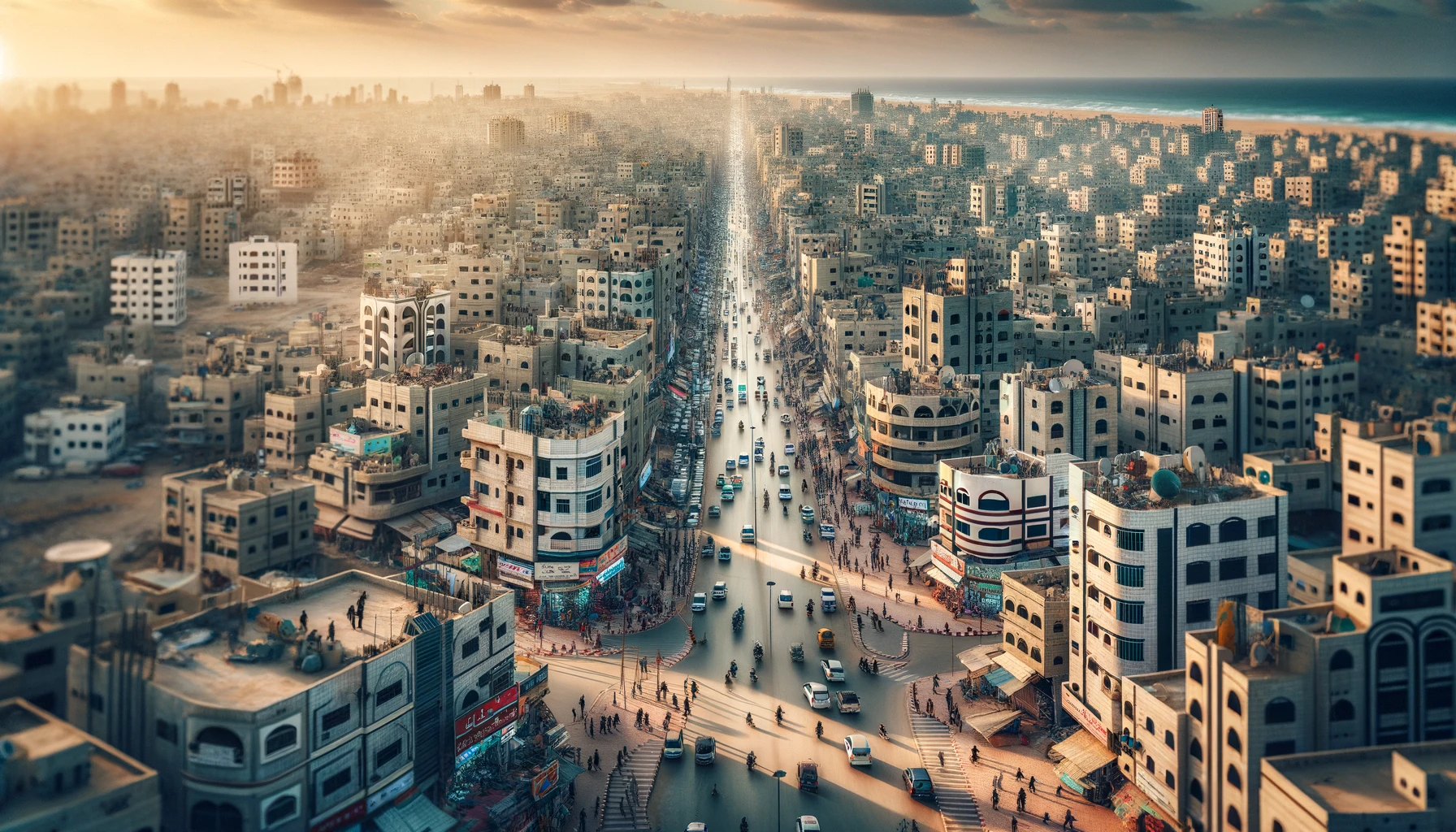The situation in the southern Gaza city of Rafah has become incredibly dire for the people living there. Imagine a city originally home to 250,000 people now crowded with around 1.5 million people. These individuals, including families, children, and the elderly, have been forced to move further south, seeking safety from continuous military actions. This has led to overcrowded conditions, with people living in situations described by the United Nations as “abysmal”. This means they’re facing very tough living conditions, where getting enough food is a challenge, and diseases can spread easily due to the cramped spaces.
The military actions in the area have caused a significant loss of life and raised fears of a larger conflict that could push even more people into difficult situations. The International Court of Justice, an important global institution that settles disputes between countries, has even said that what’s happening could be seen as genocide. Now, there’s worry that further military operations could force people into neighboring Egypt, which could create an even more complicated situation.
Egypt, the country right next to Gaza, has been under a lot of pressure to help. However, the Egyptian government has been very clear about not allowing a large influx of people from Gaza into its territory. The President of Egypt has stated that allowing people to cross the border en masse would be a “red line”, suggesting it could harm the Palestinian cause. The UN’s refugee agency agrees, saying that moving people to Egypt could end up being bad for everyone involved, including the possibility that those who leave might never be allowed to return to their homes.
Why is Egypt hesitant? There are a few reasons. Firstly, Egypt does not want to be part of what could be seen as a forced movement of people, which could be considered ethnic cleansing. There have been suggestions and even plans discussed in Israel about moving the population of Gaza into Egypt, which has caused a lot of concerns. Egypt also values its public’s strong support for the people of Gaza and wants to maintain that solidarity. They remember the painful history of 1948 when many Palestinians were forced to leave their homes, an event known as the Nakba or “catastrophe”, and they do not want to contribute to a similar situation.
Egypt is also worried about its own security. If many people from Gaza were to move to Sinai, a region in Egypt, it could become a new area for conflicts. Egypt has worked hard to control violence in Sinai and likely fears that a large number of refugees could destabilize the region. The relationship between Egypt and the group Hamas, which governs Gaza, is complicated. While they have worked together on some issues, Egypt has also taken strong actions against tunnels used for smuggling between Gaza and Egypt and has supported the blockade of Gaza, limiting what can enter and leave the area.
With these complex relationships and the ongoing conflict, the situation for the people in Gaza remains extremely challenging. They face not just the immediate dangers of military action but also the longer-term issues of living in overcrowded conditions with limited access to necessities like food, clean water, and medical care. Countries in the region and around the world are watching closely, but so far, there has been little movement towards a solution that would address the humanitarian crisis in Gaza.

This article is based on the following article:

Background Information
Understanding these points provides essential context for grasping the complexities of the situation in Gaza, the humanitarian challenges faced by its population, and the political dynamics at play in the region.
1. Gaza Strip: A small region on the eastern coast of the Mediterranean Sea, bordered by Israel to the north and east, and Egypt to the south. It’s one of the most densely populated areas in the world and has been under a blockade by Israel and Egypt since 2007, severely restricting the movement of people and goods in and out of the territory.
2. Palestinians: The Arab population native to Palestine, of which the Gaza Strip is a part. Over the decades, the conflict with Israel over land and statehood has led to multiple wars and ongoing tensions.
3. Israeli-Palestinian Conflict: A long-standing political and territorial conflict between Israelis and Palestinians, dating back to the early 20th century. Key issues include the borders of Israel and the rights of Palestinians, including those to statehood and return to homes from which they were displaced.
4. Rafah: A city located at the southern tip of the Gaza Strip, bordering Egypt. It has a significant position both geographically and strategically, being a site for cross-border movement between Gaza and Egypt.
5. Humanitarian Crisis: Situations where the welfare and rights of humans are at significant risk. In Gaza, this includes overcrowding, lack of access to essential services like clean water, food, healthcare, and education, exacerbated by ongoing conflict.
6. International Court of Justice (ICJ): The principal judicial organ of the United Nations, responsible for settling legal disputes between states and giving advisory opinions on legal questions referred to it by authorized international organs and agencies.
7. Genocide: The intentional action to destroy a people—usually defined by nationality, race, religion, or ethnicity—in whole or in part. The accusation of genocide in the context of Gaza refers to claims about the intent and impact of military actions on the Palestinian population.
8. Egypt’s Role: Egypt shares a border with the Gaza Strip and has a complex relationship with both Israel and the Palestinians. Its decisions regarding border crossings and the acceptance of refugees significantly impact the humanitarian situation in Gaza.
9. Hamas: A Palestinian Islamic political and militant group that has governed the Gaza Strip since 2007. It has been involved in numerous conflicts with Israel. Hamas is considered a terrorist organization by Israel, the United States, and the European Union, among others, though it also provides social services within Gaza.
Please subscribe to Insight Fortnight, our biweekly newsletter!
